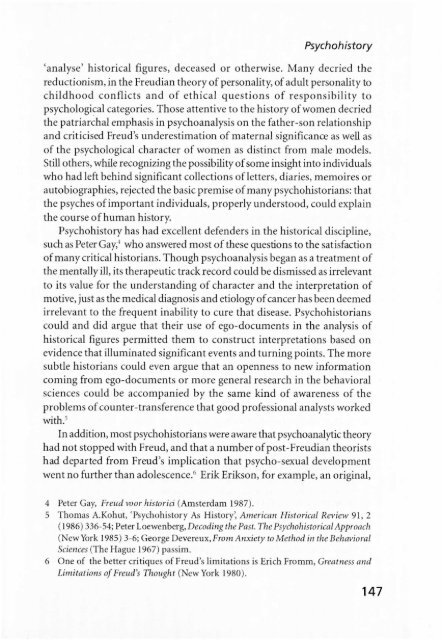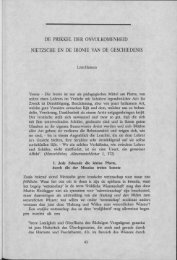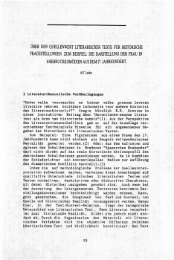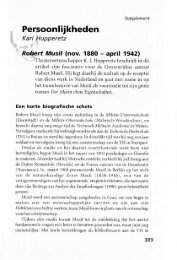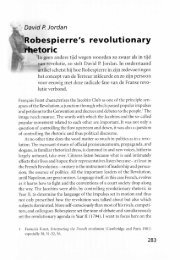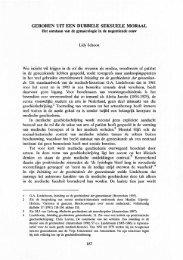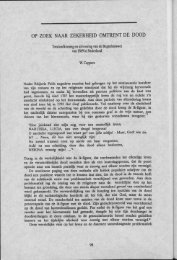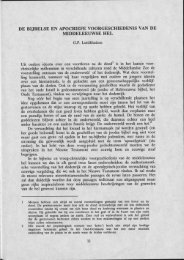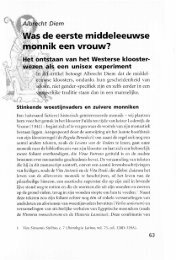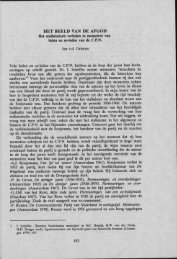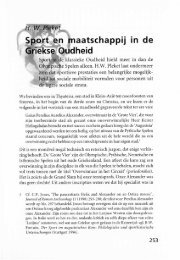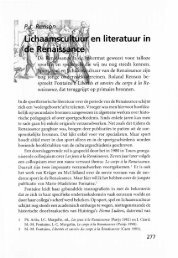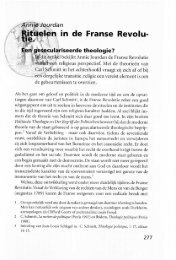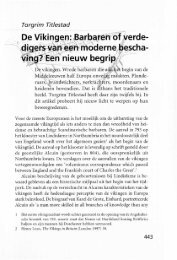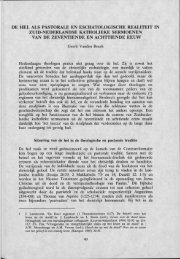di e'nsion - Groniek
di e'nsion - Groniek
di e'nsion - Groniek
You also want an ePaper? Increase the reach of your titles
YUMPU automatically turns print PDFs into web optimized ePapers that Google loves.
Psychohistory<br />
'analyse' historical figures, deceased or otherwise. Many decried the<br />
reductionism, in the Freu<strong>di</strong>an theory of personality, of adult personality to<br />
childhood conflicts and of ethical questions of responsibility to<br />
psychological categories. Those attentive to the history ofwomen decried<br />
the patriarchal emphasis in psychoanalysis on the father-son relationship<br />
and criticised Freud's underestimation of maternal significance as well as<br />
of the psychological character of women as <strong>di</strong>stinct from male models.<br />
Still others, while recognizing the possibility ofsome insight into in<strong>di</strong>viduals<br />
who had left behind significant collections ofletters, <strong>di</strong>aries, memoires or<br />
autobiographies, rejected the basic premise ofmany psychohistorians: that<br />
the psyches ofimportant in<strong>di</strong>viduals, properly understood, could explain<br />
the course ofhuman history.<br />
Psychohistory has had excellent defenders in the historical <strong>di</strong>scipline,<br />
such as Peter Gay,4 who answered most of these questions to the satisfaction<br />
ofmany critical historians. Though psychoanalysis began as a treatment of<br />
the mentally ill, its therapeutic track record could be <strong>di</strong>smissed as irrelevant<br />
to its value for the understan<strong>di</strong>ng of character and the interpretation of<br />
motive, just as the me<strong>di</strong>cal <strong>di</strong>agnosis and etiology ofcancer has been deemed<br />
irrelevant to the frequent inability to cure that <strong>di</strong>sease. Psychohistorians<br />
could and <strong>di</strong>d argue that their use of ego-documents in the analysis of<br />
historical figures permitted them to construct interpretations based on<br />
evidence that illuminated significant events and turning points. The more<br />
subde historians could even argue that an openness to new information<br />
coming from ego-documents or more general research in the behavioral<br />
sciences could be accompanied by the same kind of awareness of the<br />
problems ofcounter-transference that good professional analysts worked<br />
with. s<br />
In ad<strong>di</strong>tion, most psychohistorians were aware that psychoanalytic theory<br />
had not stopped with Freud, and that a number ofpost- Freu<strong>di</strong>an theorists<br />
had departed from Freud's implication that psycho-sexual development<br />
went no further than adolescence. 6 Erik Erikson, for example, an original,<br />
4 Peter Gay, Freud voor historici (Amsterdam 1987).<br />
5 Thomas A.Kohut, 'Psychohistory As History: American Historical Review 91, 2<br />
(1986) 336-54; Peter Loewenberg, Deco<strong>di</strong>ng the Pas/. The Psychohistorical Approach<br />
(New York 1985) 3-6; George Devereux,From Anxiety to Methad in the Behavioral<br />
5ciences (The Hague 1967) passim.<br />
6 One of the better critiques of Freud's limitations is Erich Fromm, Greatness and<br />
Limitations ofFreud's Thought (New York 1980).<br />
147


